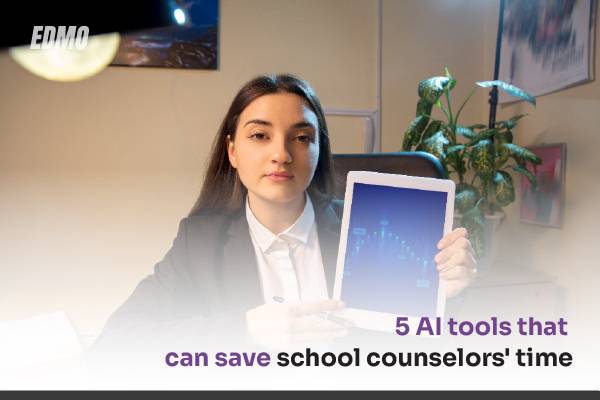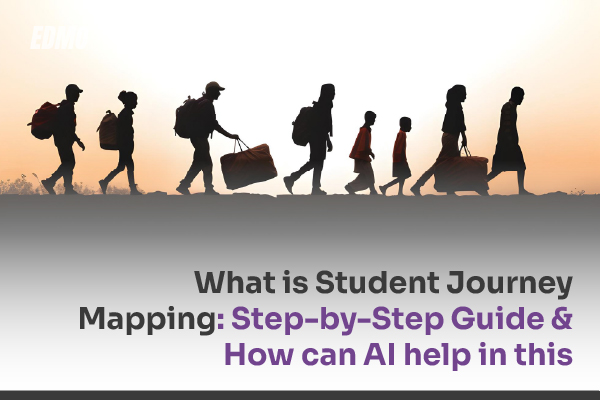Introduction
- The American School Counselor Association (ASCA) recommends a 250-to-1 student-to-counselor ratio. However, for the 2023–2024 school year, the national average is 376-to-1.
- According to data from the Department of Education, 17% of high schools nationwide do not have a school counselor, leaving approximately 653,700 high school students without this essential service.
- Several studies have found that lower ratios promote higher standardized test scores, attendance, GPA, graduation rates, and lower disciplinary violations. According to other research, lower ratios improve the chance of kids discussing college and postsecondary plans with school counselors.
- Technology was not required to conduct the job of a school counselor. However, nowadays (particularly in the aftermath of a worldwide epidemic), counselors would be unable to carry out their duties at work without using technical equipment, programs, or applications.
- A school counselor can use technology to enhance student growth in various ways. Technology may help students with their academics, social/emotional well-being, and college and job preparation.
- Technologies can also help a school counselor’s continual connection with parents and teachers. Furthermore, technology allows for the efficient collection and analysis of data required for monitoring students’ requirements.
- The American School Counselor Association supports a model with four components that summarize the tasks of a school counselor in a reasonably straightforward manner: define, manage, provide, and assess. Technology may aid a school counselor in properly completing job responsibilities to serve pupils through these four components.
Ways to use technology as a school counselor
1. Supporting Student Development
- School counselors assist students with studies, social-emotional well-being, and job preparation.
- Digital technologies make a school counselor’s job easier and save a lot of time.
- Thanks to technology tools like Google Meet and Zoom, counseling meetings can still occur even if students learn in a virtual environment.
- In addition to interacting with students individually, these platforms may be employed to perform small groups and deliver classroom sessions on various topics.
- School counselors may use Google Docs, Sheets, Calendar, and Gmail to write notes, document sessions, arrange their workday, and communicate with others.
2. Academic Growth
- Many educational technology systems are available to help school counselors enhance pupils intellectually.
- There are several software tools, for example, that function with all devices to reinforce abilities that kids may be failing to grasp.
- These programs may be tailored to each student’s specific academic requirements.
- These programs can also be accessed from home for extra time to strengthen essential academic abilities, particularly in language arts and mathematics.
- These tools may also generate reports in seconds, providing data to a school counselor to track a student’s progress.
3. Social-Emotional Well-Being
- Many websites containing various services, such as movies and information about social-emotional learning, are utilized to assist and enhance students’ social-emotional well-being.
- There are many YouTube videos, for example, that may be utilized to encourage mindfulness and meditation.
- There are also several mental health self-assessments available for kids to complete to offer information to school counselors to assist in treating their unique difficulties.
4. Career and College Preparation
- Technology applications that aid in job exploration and developing particular career-ready skills are beneficial to school counselors.
- A complete career development technology program is an excellent tool to educate career and job standards and document and store artifacts.
Five AI tools that can save your counselors’ time
School counselors who utilize technology effectively have ample opportunities to engage with their kids. Rather than reducing the amount of time they have for face-to-face interaction, being digitally connected, including using online technologies, makes that time more valuable. Technology can help counselors save time and money while better fulfilling their obligations, such as reaching out to kids, educators, and parents. Here are five ways that technology may help school counselors.
1. Website/Blog
- Many counselors utilize blogs to communicate what they’re doing and coping with regular and instructive videos, handy applications, how-to advice, and abstracts of professional papers.
- Andrea Burston, a counselor at JY Joyner Magnet Elementary in Raleigh, NC, has even developed her Wiki page called ‘iPads for School Counselors,’ She provides practical applications, online connections, counselor blogs to follow, and other resources.
- Counselors may stay flexible and more engaged with parents, kids, and peers by utilizing accessible technology for assessment, college preparation, social networks, and a site or blog. This is particularly true if they employ technology to make themselves mobile.
2. Going Mobile
- When visiting classrooms or meeting with children, counselors can utilize a tablet or even their smartphones to take notes. These notes may be readily stored for future reference.
- Mobile devices can also access information, collect student responses to surveys, and do various other tasks while on the road.
- “School counselors are having daily talks and exchanging materials without regard for space, speed, or time,” says Russell Sabella, a counseling professor. “I view technology as a tool that will allow us to achieve, accomplish, and succeed.”
- Many counselors and school districts utilize messaging applications to communicate with children and parents about various issues.
- Text is an excellent tool for sending reminders and notifications about everything from snowstorms to scholarship registration deadlines to SAT and ACT dates.
3. Social Media
- Social media provides specialized hashtags, such as #scchat, which are used to communicate with other counselors and discuss specific concerns and frequently asked questions.
- However, social media provides much more than just connection and professional advancement.
- While counselors are prohibited from communicating with kids via their personal Twitter and Facebook profiles, Facebook sites can be used to announce upcoming events and seminars and highlight services available to students.
- Social networks can identify and correct cyberbullying and other issues that school counselors deal with, keep students and parents informed of school activities and events via groups and pages, and broadcast school news such as closings, early release days, and athletic activities.
4. College Planning
- Not only are grades important, but the courses kids choose in high school can impact whether or not they get into their preferred college.
- Most schools include their admission criteria on their websites, but they have also been vetted by sites like iSchoolConnect’s Explore Universities page.
- Counselors and students can use these websites to study application fees, admittance criteria like standardized tests and GPA, and enroll for scholarships and financial aid.
- This technology helps students study universities on their terms, and it also allows counselors to be better knowledgeable when advising students on their college choices.
5. Testing
- Counselors can help students achieve good academic and vocational development by providing soft skills testing to evaluate placement and aptitude.
- Many digital guidance services allow kids to take these examinations online and report findings to counselors, who can take appropriate action.
- There are several career aptitude tests available. They concentrate on various skill sets, including quantitative, linguistic, nonverbal, mechanical, and other abilities. These can be utilized in a variety of ways.
- Some tests might assist a student who is unsure of their strengths in making that conclusion.
- Others provide examinations in specific areas, which are frequently used to verify whether a student is qualified for a career field in which they have expressed an interest.
Three technology tools that can make counseling sessions more effective
It might be challenging to develop compelling school counseling classes that attract kids. Including a digital component in the courses is one method to capture their attention and increase participation. School counselors may utilize three technological tools to improve their school counseling classes.
1. EDMO’s AI Chatbot
- EDMO’s Conversational Intelligence tool is designed to handle a wide range of student queries, including those from prospective and current students, ensuring prompt and accurate responses for applications, documents, and general inquiries.
- By efficiently addressing routine concerns, the tool enables counselors to focus on more complex and personalized student cases, enhancing the overall counseling process and saving significant time and effort.
- With its ability to seamlessly switch between automated responses and live human support, the tool ensures a smooth and adaptable user experience tailored to the specific needs of students and institutions.
2. Kahoot!
- Kahoot! is a free internet program that school counselors may use to build learning games that test their students’ knowledge.
- Students may participate in the learning games by utilizing a computer, tablet, or smartphone.
- Counselors can arrange for kids to play one-on-one or in groups.
- Creating learning games with Kahoot! is simple.
- To learn how to make a Kahoot! Learning game, one can add the information to available templates or follow instructions.
- Counselors may learn how to construct fantastic Kahoot! Activities and even become Kahoot! Certified using professional development tools.
3. Nearpod
- Nearpod enables counselors to include interactive components into current classes or presentations and create an interactive Nearpod.
- The website also has over 7,000 ready-to-use courses. Nearpod collaborates with Common Sense Media groups to deliver high-quality, ready-to-use courses.
- Students can observe and engage with the lecture on their tablet or smartphone using Nearpod.
- Interactive elements are polls, quizzes, open-ended questions, collaboration boards, fill-in-the-blanks, virtual learning environment trips, matching games, and a whiteboard function on which students draw or write a response.
- Nearpods may also play the video clip on all pupil devices or allow a video clip to play on the class device.
Conclusion
The American School Counseling Association (ASCA) has stressed the significance of school counselors’ use of technology and engagement with parents and educators. The use of technology has influenced school counselors’ counseling services and how counselors connect with and assist students. School counselors must understand how technology affects schools to offer children the most appropriate and effective counseling services.







